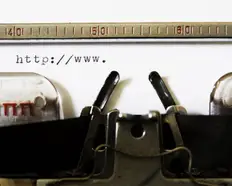Chat with Ava - Your AI Business Consultant
Hi I'm Ava, your AI guide to supercharging your business!
Whether you're already running a business or dreaming of starting one, I'm here to help turn your vision into reality using AI powered freelancers. Share your business goals, and together, we'll create a project that our talented freelancers can bid on. Let's make your vision a reality!
I have a business
I'm starting a business
Something went wrong while sending the conversation to your email. Please try again later.
You can only save your conversation once per hour. Please try again later.
Your conversation is too short. Keep chatting with Ava to enable saving.
3 skills you'll need to write social media marketing posts
Writing for social media is a marketing must, but it takes a particular set of skills to be effective. Learn these skills and dominate social media.
May 24, 2019 • 5 minute read
Updated on Jan 21, 2020 by Closed User
G
Closed User
Copy to clipboard failed, please try again after adjusting your permissions.
Copied to clipboard.

Social media is a powerful tool for your business, if used correctly
Social media is immediate, and it can connect you to potentially millions of fans. If you decide to launch a social media strategy for your business, your DIY approach will have the benefit of not needing to engage an advertising agency. Them with their expensive commissions, three martini business lunches and incessant chain smoking. (Note: Wikipedia was down. Had to use television as a resource.)
All that being said, there are pros and cons for the average person who wants to try to Hamm it up as a less brilliant and almost certainly not-as-stylish digital Don Draper. Effectively wielding social media on the internet, be it Facebook, Twitter or Instagram, is not like using a powerful community cork board. You can't just thumbtack up a print-out of your wares with those little tearable phone number slivers. The internet is a judgmental place and your earnest-yet-misguided attempts to go viral may come across as (thumb) tacky. The strips that shall be torn off you by jerks won't lead to sales or success.
Now that we have the worst-case scenario out of the way, let's take an honest look at the positives and negatives of handling social media writing yourself. What skills will you need? How tough is it to make some headway?
What makes for good writing on social?
Take it from a guy who was thrown into the deep end and had to learn the hard way. At the dawn of my career, I was a print-only writer; the editor of an official PlayStation magazine. This all changed when one of the suits decided to sign us up to what he described as “the face stories” on “the inner web”. Thus began my trial by fire with a 250k-strong group of fans.
They were folks who self-identified as gamers. If you're not familiar with the genus, a small yet incredibly vocal minority of gamers likes to nitpick harder than a mother gorilla. It was in this crucible that I was tormented into understanding what works with social media writing. I also learned what the worst-case situations are that will make you want to cancel your internet and click twice with the Infinity Gauntlet.
Freelance Freelance Writing Experts


Copywriting
Legal
Internet Marketing
SEO
Research


Website Design
Copywriting
Internet Marketing
Research
Proofreading


Translation
Internet Marketing
Project Management
Research
Proofreading


Copywriting
Banner Design
Data Processing
SEO
Data Entry
1. Patience
Before you even put finger to key, your temperament must be considered. You could be the best writer in the world, but it wouldn't be enough to hit serious numbers on a social media platform. Wordslinging skills ought to be paired with a thick skin and a level head.
I couldn't tell you exactly why, but the main hobby of some people is trolling: getting a rise out of you in any way possible, even it means being an absolute moron to elicit said reaction.
Writing for social media, then, requires a good nose for a trap, either laid by somebody else, or one you've accidentally constructed for yourself because you couldn't think three steps ahead. One also needs to know when not to bite back, or when to walk away from a fight you cannot win.
Generally speaking, the time to bite back is never. The time to walk away is almost always. Social media is akin to retail.
2. Virtual room reading
And, of course, you'll want to minimise the aforementioned combative situations by knowing your viewers and not writing things that angry up their blood in the first place. This is by far the hardest part of writing on social media. As with all mediums, it's imperative that you write for your audience, but with an ever-shifting potential readership of millions, it can be difficult to know who that is.
A professional will take the time to do what's known as a persona study. It's literally playing a game of Guess Who in reverse. You'll create a dossier of three imaginary individuals who are the top three archetypes of your ideal readers. You'll fill in their age, sex, occupation, likes and dislikes. What's important is that you do your homework and laser focus in on who your conversations are going to be with. This is especially true if you're working in a team. Everybody needs to be on the same page.
3. Quirky vs professionalism
Let's put this in Kill Bill terms. A good writer is like kung fu master Pai Mei. After much training, they can snatch eyeballs like nobody's business.
This is an incredibly valuable skill in social media, where the market is flooded with useless info and attention spans are measured in milliseconds. You've got a very small window to either delight or shock your prey into reading one sentence more, or to click into a link.
Generally speaking, your writer needs to have a flawless command of the English language. Typos must simply not occur, because you're always one screenshot away from becoming a hilarious meme on Reddit. All of us are. And the even worse news is that once something is on the internet it's pretty much there forever.
Secondly, there's the fine art of tone. Assuming you've accumulated solid intel for your personas, you'll know what sort of person you're trying to connect with. Now comes the difficult part of trying to sound like them.
By and large, the people we love listening to are most like ourselves. There's no shame in it – you are your favourite kinda folk. A good social media writer needs to become a chameleon who's adept at observing, storing and redeploy traits, idioms and pop culture references in contextually clever and engaging ways.
Lastly, let's round this out with a warning. We're living in the age of outrage. It's sport for some people to go and pick fights with brands. This can be for a variety of reasons, too. Some complaints may be legitimate concerns, others might be an attempt to get attention.
With the use of comedy comes risk. Humor is often at the expense of somebody or something else, after all. As a general rule, punch upwards. I'd like to tell you that this advice will be enough to keep you out of a kangaroo court run by a peanut gallery of thousands. But it probably won't be.
If all this talk of virtual judges and juries, audience personas and crafting messages frightens you, you might want to consider hiring a professional to pen your social media posts. A good freelance writer will know how to navigate the minefield of social media, and how to engage with an audience to bring them to your site and your brand.
Freelance Freelance Writing Experts


Copywriting
Internet Marketing
Data Entry
Research
Proofreading


Copywriting
Research
Proofreading
Blog
Editing


Data Entry
Excel
WordPress
Powerpoint
Financial Research


Proofreading
Technical Writing
Editing
Word
Article Rewriting
Tell us what you need done
Enter your project name
Related Stories
Talk to one of our Technical Co-Pilots to help with your project
Recommended Articles Just for You

Need to write content for your website? Follow our guide to make sure it's optimized to rank on the first page of Google
20 min read

Struggling to come up with the best idea? Our exhaustive guide runs through the idea generation process to help you tap into your inner Steve Jobs.
10 min read

Effective social media marketing is crucial your brand. Learn how to hire a social media expert to bring you maximum results for minimum investment
10 min read

You can hire a programmer to solve just about any complex problem, the problem is knowing how to hire the right professional for the job. Learn how..
13 min read
Thanks! We’ve emailed you a link to claim your free credit.
Something went wrong while sending your email. Please try again.
Loading preview
Permission granted for Geolocation.
Your login session has expired and you have been logged out. Please log in again.




